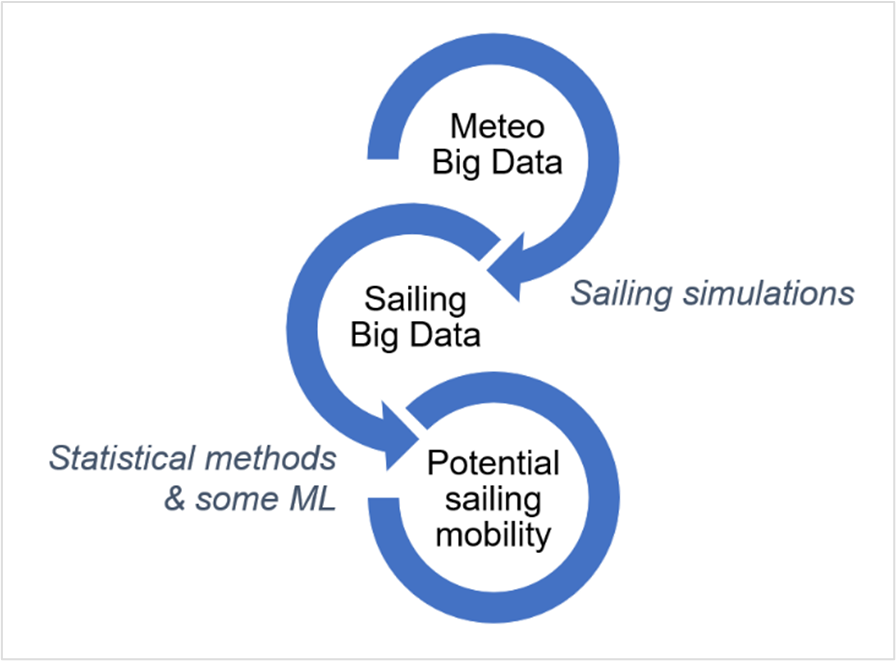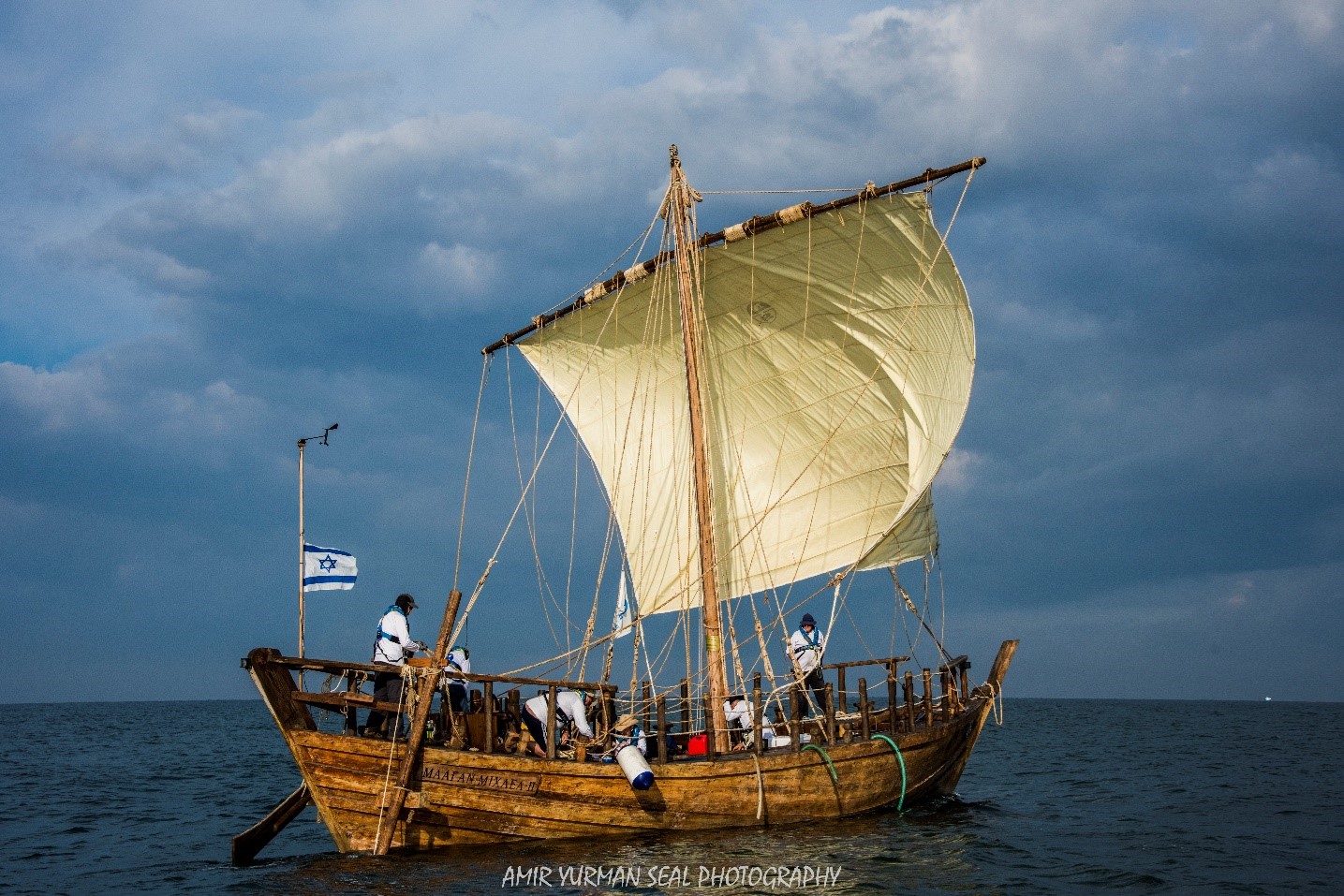
Mapping of potential sailing mobility in Antiquity has eluded researchers who have attempted to derive sailing abilities of ancient ships from averaged climatic wind data. A PhD study underway at the Department of Maritime Civilization has taken a different approach using Data Science methods.
The underlying premise is that (a) the variabilities typical to Mediterranean winds are the key drivers of sailing mobility especially when a sailing passage lies contrary to prevailing winds; (b) these variabilities can be resolved in a large modern meteorological data set at high spatiotemporal resolution but are lost in averaged climatic data sets; and (c) palaeoclimatological examination has shown that the wind patterns in the Mediterranean have not changed in the last 3000 years and more.
Sailing passages are reconstructed throughout the data set using regatta weather-routing software. This reduces the meteorological data, which is in the order of billions of records, to millions of sailing records. These are further reduced by statistical methods to obtain metrics of potential sailing mobility. Simulation is the primary DC methodology employed in this study. An additional planned application will be to use ML to examine whether the ancient mariners were able to predict the successful outcome of a sailing passage based on human observable weather parameters at the place and time of departure.
We thank the DSRC for their seed funding which provided the research with the ability to build a meteorological reanalysis database at the very high resolutions needed to examine coastal breeze cycles.


